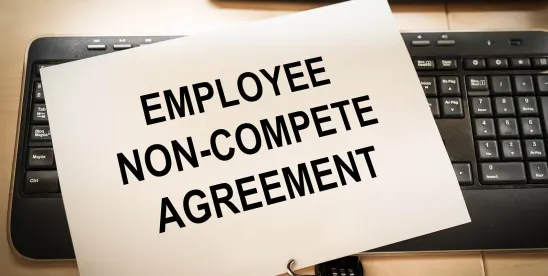Ohio could become the latest state to join the growing list of jurisdictions to ban or significantly restrict the use of noncompete agreements in employment under bipartisan legislation introduced by a pair of state lawmakers.
Quick Hits
- Ohio state senators have introduced bipartisan legislation to ban noncompete agreements that restrict workers post-employment and provide them with the right to take legal action against employers.
- The proposed bill would void any noncompete agreements entered into or modified after the bill’s effective date.
- If passed, Ohio would join the growing number of states implementing restrictions on noncompete agreements, following a broader trend.
On February 5, 2025, Ohio state Senators Bill Blessing (R-Colerain Township) and Bill DeMora (D-Columbus) filed Senate Bill (SB) 11, which would prohibit employers from entering into or attempting to enter into a noncompete agreement with a worker or “prospective worker.” The cosponsorship signals the possibility of bipartisan support for the measure.
Ohio is currently one of fewer than a dozen states without legislation on noncompetes, such as prohibiting them, requiring notice, limiting them to high-wage earners, or other similar limitations.
Instead, the enforceability of noncompetes in Ohio remains governed by the 1975 Ohio Supreme Court case Raimonde v. VanVlerah, which sets forth factors for a court to consider as to whether a restrictive covenant is reasonable and based upon a protectable business interest.
SB 11
As introduced, SB 11 would prohibit employers from enforcing agreements that prohibit or penalize workers for seeking or accepting work or operating a business after the conclusion of the relationship between the employer and worker. Such prohibited restrictions include an agreement that:
- “the worker will not work for another employer for a specified period of time, not work in a specified geographic area, or not work for another employer in a capacity similar to the worker’s work for the employer”;
- “requires the worker to pay for lost profits, lost goodwill, or liquidated damages because the worker terminates the work relationship”;
- “imposes a fee or cost on a worker for terminating the work relationship”;
- requires a worker who terminates his or her employment to reimburse the employer for expenses incurred for training, orientation, evaluation, or other services to improve the workers’ performance; and
- the worker will not work for another employer for a specified period of time, not work in a specified geographical area, or not work for another employer in a capacity similar to the worker’s work for the employer.
Such agreements would be void if entered into, modified, or extended after the effective date of the bill.
Employers would be prohibited from requiring claims for violations of the noncompete ban outside of the state or depriving claimants of state legal protection for disputes arising in the state. However, that choice of law restriction would not apply to workers who are represented by legal counsel and choose a venue or forum to adjudicate the claim, or choose the law to be applied.
SB 11 would further provide workers with a right of action to bring civil claims against employers for violations to seek damages, including costs, attorneys’ fees, actual damages, punitive damages up to $5,000, and injunctive relief. Workers would also be able to file complaints with the attorney general or the director of commerce, who will investigate and may bring actions on behalf of the worker.
Next Steps
It is too soon to predict whether SB 11 will have momentum, but state-level limitations on restrictive covenants have been trending in the last decade. That trend could continue, particularly after a 2024 Federal Trade Commission (FTC) rule that sought to ban nearly all noncompete agreements in employment was struck down in court. It is unclear whether the Trump administration will continue to pursue the Biden-era ban, leaving it to states to regulate noncompete agreements.





 />i
/>i

